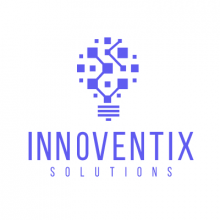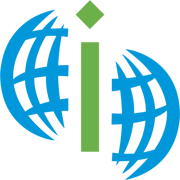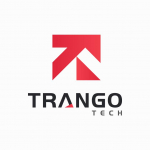
There are 1539 Companies in the United States
that provide Azure Platform Services!
The United States has probably the most advanced software and information technology (IT) services industry in the world. More than 40 percent of the $5 trillion global IT market is in North America, primarily the United States. The industry accounts for $2.1 trillion of U.S. value-added GDP (more than 10 percent of the national economy) and 702.276 jobs.
Discover Top IT Companies in the United States specialized in Azure Platform and other related services. Find the best IT service providers for your projects.
Azure Platform, developed by Microsoft, stands as a versatile cloud computing platform known for its ability to empower organizations with a wide range of cloud-based solutions. It offers a comprehensive suite of services and tools designed to support businesses in their digital transformation journey.
Handpicked companies • No obligation to hire • 100% risk-free
Featured Companies in United States
This month, the following Azure Platform companies managed to provide an outstanding service and support. It's worth taking a look.

*instinctools Verified Company
Potomac, United States Head office in: Germany
Your AI-powered Engineering Partner

TechGropse Pvt. Ltd. Verified Company
Atlanta, United States Head office in: United Arab Emirates
Techgropse is a leading Mobile App and Web Development Company, dedicated to turning innovative ideas into remarkable digital solutions. 500+ Clients

New York, United States Head office in: United States
SDLC Corp is a global IT solutions provider offering custom software, apps, blockchain, AI, Odoo, Salesforce, and game development services.
Empat delivers full-cycle software development grounded in research and technical excellence, from system architecture and engineering to UI/UX.
Imaginovation is a software development company delivering custom mobile apps, web apps, and AI solutions that drive business growth and innovation.

Codewave Global Verified Company
Texas, United States Head office in: India
Unlock Rapid Innovation in Design & Tech: AI-Powered Efficiency (2x), Transparent Costs, Limitless Customization!
Explore Top Azure Platform Companies in United States
Use the advanced filter to find companies near you or refine the results Last updated in: January, 2026

New York, United States Head office in: United States
Access the Top 1% Tech Talent | 1500+ In-House Developers | Trusted by Fortune 500 Companies
Digital Transformation Solutions Company
Strong website presence is a critical part of the digital world. At Web Design Lane, we have an award-winning team of strategists,

Startbit IT Solutions Verified Company
Wilmington DE, United States Head office in: India
Best Affordable Team in eCommerce, Website, Software, SAP, Salesforce, and Mobile APP Development
Kuchoriya Techsoft—Mobile app, web, and custom software development company helping businesses with scalable digital transformation solutions.
Full Stack Digital Product Development Company

Innoventix Solutions Verified Company
Wilmington DE, United States Head office in: India
Welcome to Innoventix Solutions! We are dedicated to providing excellent services to our clients that help to achieve their goals.

ZAPTA Technologies Verified Company
Houston, United States Head office in: Pakistan
Customized Software Design and Development

Reston, United States Head office in: Poland
Turning Your Great Ideas Into Successful Solutions

Delaware, United States Head office in: United States
Transforming businesses with tailored digital solutions that go beyond software.
Trango Tech offers unmatched IT services, business, & digital solutions to strengthen, and transform our client’s businesses, allowing them to grow.

Tampa, United States Head office in: United States
Tailored Software Solutions for Automotive, Retail, Real-Estate, Logistic, HealthCare. B2B / D2C / B2C custom E-commerce platforms for your business.
Blockchain company | Web & Mobile Development | Technical partners
Services:
Decoding Innovation In AI/ML, Blockchain, DevOps, Low code and AI testing

NJ, United States Head office in: India
SPEC INDIA has been a leading software development company for the last 36 years, offering next-gen mobile apps, web app development with BI services
Unleashing Software Potential, One Innovation at a Time

ELEK+RIK Development Agency Verified Company
Sacramento, United States Head office in: United States
Custom Software Development, Mobile App Development for iOS & Android, AI Integration & Development Experts for Long-Term US Projects since 2010
Filter Azure Platform Companies in United States by Cities
Find the right tech company near you or from a specific city. Some of the best companies might be located in smaller cities.
Find more Azure Platform companies around the world
TechBehemoths is the world's most advanced and user-friendly platform to match IT Companies with real clients without hustle.
ICT in the United States: General Profile and Insights
The United States has probably the most advanced software and information technology (IT) services industry in the world. More than 40 percent of the $5 trillion global IT market is in North America, primarily the United States. The industry accounts for $2.1 trillion of U.S. value-added GDP (more than 10 percent of the national economy) and 702.276 jobs. According to CompTIA, there are more than 700,000 software and IT services companies in the United States.
The average net salary of a web developer in the US is around $82,532 annually. On the other hand, the hourly rate is nearly $33.47, which makes it one of the best-paid jobs in the world within the IT industry.
Why Should You Work With American Web & Software Development Companies
U.S. software development companies operate in a mature, harmonized market and have a reputation for producing reliable and effective solutions that quickly accelerate to the marketplace. International companies in the industry have shown interest in the U.S. market because of its strong intellectual property rights laws and enforcement. U.S. companies lead the world's packaged and custom-software markets and are competitive in nearly all other market segments with a stable overseas market share.
What You Should Be Aware of When Working With a US-based ICT Company
Having a large IT market has both advantages and disadvantages. While offering a wider variety of US IT companies to choose from is one of the biggest advantages the U.S. has to offer, the challenge for potential clients and partners of the U.S.-based web & IT companies is that the industry development is not equally distributed across all states and cities. For example, many tech companies are relocating to Texas from Silicon Valley. This is why it’s good to have in mind the most important U.S. IT hubs and focus on choosing the most suitable one depending on your needs.
How Reliable are US-based IT Companies
Based on a report delivered by CompTIA in 2020, which is still relevant for 2025, the changes in the global IT market that make competition in this area tougher, U.S. companies will focus more on three development pillars:
- Training and Certification of professionals in their existing tech skills
- Training and Certification of professionals in new tech skills
- Career growth and project management.
This means that the market is saturated with the workforce, and there is a small probability that companies will increase their hiring rate for new professionals. However, intensive and extensive skills development of U.S. tech professionals will increase the capacity and attractiveness of U.S. IT companies and web agencies. Additionally, this will improve the already well-developed abilities to deliver high-end products and services in the IT field.
How Does the US IT Industry Relate to the Neighboring Countries
Considering that the US has probably the most developed IT infrastructure, the industry will keep its position for at least 3 years. On the other hand, the rising numbers of IT companies from Canada and Mexico come in contrast with what US companies have to offer. In other words, clients still have to choose between US companies and neighboring countries as the offers differ in quality and ways of executing projects.
Overall, the US IT industry is in leading positions in different sectors, and combined with an authentic business culture, will probably continue to keep its attractiveness. Although companies from the U.S. are flexible and are always adjusting to market requirements, the global market still remains unpredictable, which may lead to significant changes in the future.
US Tech Industry Outlook for 2025 and Beyond
The US is still leading the world with its cutting-edge technologies, despite some narratives. The expected revenue for the market of IT Services in the US is $563.94 billion by 2025, with a CAGR of 3.73% from 2025-2030, according to Statista. The biggest segment of this segment is IT Outsourcing, reaching $218.02 billion by the same year. This sector has an increased demand for solutions in cloud computing and cybersecurity services.
Artificial Intelligence will influence the tech sector in the US, with only the Generative AI contribution to GDP of $7 trillion in the next 10 years, and it can save up to $1.4 billion for the federal government.
The US is keeping its position in scientific research, graduate education, AI firms, and competitiveness. The US tech sector’s future focuses include AI, increasing cybersecurity & cloud computing.
What is Azure Platform and what are its benefits for your projects?
Azure Platform, developed by Microsoft, stands as a versatile cloud computing platform known for its ability to empower organizations with a wide range of cloud-based solutions. It offers a comprehensive suite of services and tools designed to support businesses in their digital transformation journey.
There are more than 2722 IT companies that specialize in providing Azure Platform services to businesses across the globe. These companies serve as strategic partners, helping organizations leverage Azure to achieve their goals. Notable IT service providers in this domain include Accenture, Capgemini, Infosys, and Deloitte. They offer a spectrum of services, from Azure consulting and implementation to ongoing management and support.
Azure Platform service providers employ a combination of tools and technologies to deliver effective solutions. This may include Azure DevOps for continuous integration and deployment, Azure Monitor for performance tracking, and Azure Resource Manager for resource provisioning and management. It's essential to differentiate between Azure and Azure Platform: while Azure refers to the cloud platform itself, Azure Platform encompasses the set of services, solutions, and expertise offered by IT companies to optimize Azure for specific business needs.
Azure Platform is not limited to a single service but comprises a rich ecosystem of interconnected offerings. Related services include Azure Virtual Machines for scalable computing, Azure Kubernetes Service for container orchestration, Azure AI for artificial intelligence capabilities, Azure Data Services for robust data management, and Azure Security Center for enhancing security posture.
Selecting the right IT company for Azure Platform services is a critical decision. To make an informed choice, consider factors such as the provider's experience with Azure, client references, industry expertise, and the range of services they offer. Assess their ability to align Azure solutions with your business objectives, scalability requirements, and ongoing support capabilities.
Azure Platform services find applications in a wide array of projects, including:
-
Enterprise Resource Planning (ERP) Systems: Implementing scalable ERP systems to streamline business processes.
-
E-commerce Solutions: Building and managing high-performance e-commerce websites and platforms.
-
Big Data Analytics: Leveraging Azure's data analytics tools for data-driven insights.
-
IoT Solutions: Developing IoT applications for device management and data analysis.
-
AI and Machine Learning Projects: Building intelligent applications for predictive analytics and automation.
-
Cloud Migration: Migrating on-premises infrastructure to Azure for cost savings and scalability.
-
Cybersecurity Initiatives: Strengthening security through Azure's robust security services and monitoring capabilities.
-
Hybrid Cloud Deployments: Implementing a hybrid cloud strategy for data backup, recovery, and business continuity.










